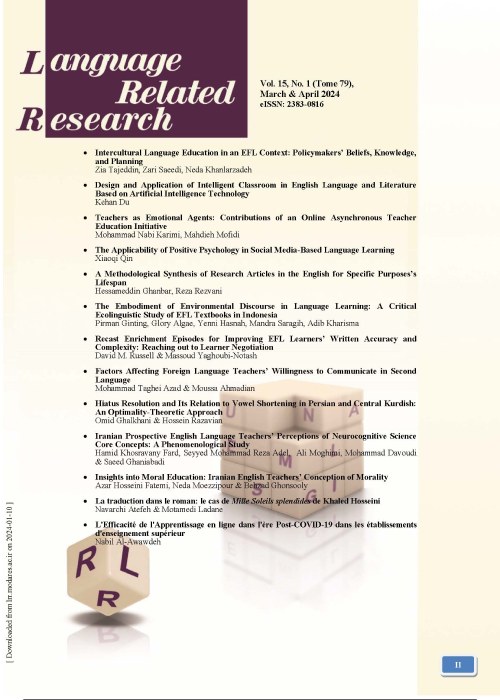The Tale of “The Fish and the Pond” from Kalila and Demna to “The Little Black Fish:” The Epistemological Patterns and the Insertion of the Subjects
In every era there is a dominant stream of thought that epistemologically all areas of knowledge of a society are more or less in tune with. This dominant stream of thought, represented by terms such as paradigm, epistemic, and so on, as an epistemic pattern, explicitly or implicitly, influences the knowledge organization of a society and the discursive articulation of the texts produced in that space. The placement of subjects in literary texts is the result of a variety of discourse articulation that is shaped by the epistemic patterns that govern each period. To better understand this, we can refer to stories that have been narrated or allegorized over several periods with distinct epistemic worlds; one of these is the story of "fish and ponds", which are independently represented in Kalila and Demna, and Rumi's Masnawi as independent narratives and in the story of the Little Black Fish. In this article, how the paradigms influence the placement of the fictional subjects from the perspective of the hero's who and why are they described in a descriptive- analytic manner. The result is that this anecdote has been represented in the classical world in the form of two inner narratives and as parables in the Kalila and Demna and the Masnawi Rumi. According to the epistemic paradigm of Holism and individualism/escapism in the classical world, the hero/ heroes are both the parables of those who have used their action to serve themselves and to become the victim of or absorbed in being or society. Of course, the holism and individualism/evasion that governs the articulation of the Kalila and Demna allegory in its own Geographical -cultural context, namely the caste of Indian foundations and Iranian political thought, seeks to legitimize and stabilize its class order. Despite the participation in the epistemic paradigm that governs the texts of Kalila and Demna and the Masnawi Rumi, the process is described in another way in the allegory of Mathnawi. In its mystical context, the universalism of the classical world, instead of consolidating social order, seeks to create ontological unity between all manifestations of being, especially between human beings and existence. In contrast to the generalism and anti-individualism/evasion that dominates the classical world and its texts, the macro-epistemic model of the contemporary world and the modern world focuses on the centrality of human subjectivity and individualism. The discourse articulation of the parable of the little black fish is arranged on the basis of this epistemic paradigm, so the placement of the subjects in it is substantially different from the preceding two parables. From the discursive point of view of the protagonist of this allegory, it is a little black fish that expresses its agency to express and establish individuality in the form of a variety of philosophical-epistemological questions to some form of symbolic body confrontation. However, the paradigm of generalism and individualism/aversion to the classical world has led to the heroic allegories of Kalila and Demna and the Masnawi of those who have used their agency to transcend themselves and maintain class order or unity with being. In contrast to contemporary humanism and individualism, it has assumed a hero who goes beyond self-expression and proving individuality, In order to awaken others and defending them in various ways interfering with social and political order; it has sought to create balance or symmetry a social interactive space.
- حق عضویت دریافتی صرف حمایت از نشریات عضو و نگهداری، تکمیل و توسعه مگیران میشود.
- پرداخت حق اشتراک و دانلود مقالات اجازه بازنشر آن در سایر رسانههای چاپی و دیجیتال را به کاربر نمیدهد.


